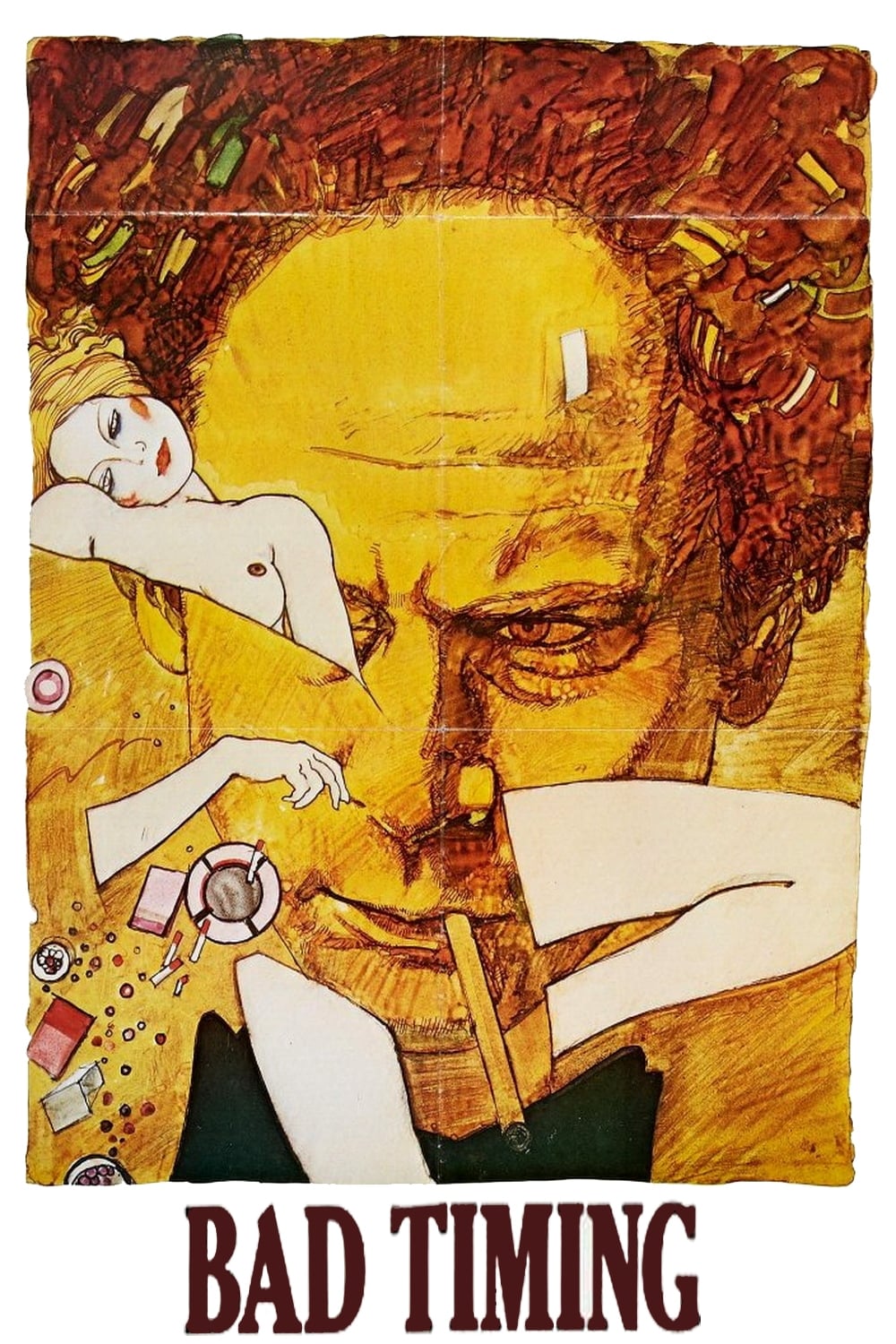
Alex Linden is a psychiatrist living in Vienna who meets Milena Flaherty though a mutual friend. Though Alex is quite a bit older than Milena, he's attracted to her young, carefree spirit. Despite the fact that Milena is already married, their friendship quickly turns into a deeply passionate love affair that threatens to overtake them both. When Milena ends up in the hospital from an overdose, Alex is taken into custody by Inspector Netusil.
25 Nov Bad Timing: A Sensual Obsession (1980)
Doubts that Bind
Love is internal. It is sustained by questions of doubt, tension, expectation. The solidity of the hand is strengthened by the slipperiness underfoot.
So suppose you wanted to make a film about the fields that animate your anchor relationships. You couldn’t do what everyone else does: deal with the tokens: the looks, the physical moving away of bodies and then re-entering. You want it to have the passion it deserves, which is a tricky thing: the passion in the relationships between the film and the viewer has to be based on the same field of passion between lovers. That field requires faith to overcome doubt. This need for investing in love as a counter to the doubts about love is what drives us, with religion and tribalisms as mere side effects.
Roeg wanted to do this. During a certain sweet spot in his career, he could shape any story into this, a story about what makes story. And to do it all by cinematic misdirection. This isn’t “Last Year at Marienbad”, which is abstract. This is internal, subconscious, but with the real fleshy stuff we actually dream in.
Some viewers will think this is a simple detective story. Bad guy lies; insistent detective catches him. It is all about sequence, the “timing” of the title. What happens first; how the thing is “explained.”
But I believe this is something much more important. Like Roeg’s other films, these are dreams. The things that happen here — that we see — drift close to what actually happens, and then away being more like imagined fears.
It is all about urges; the grandest passions rest on a collection of urges, most of which slip into uncontrollable futures.
I will advise you to approach this as something that goes on in the character’s soul. Polanski and Kiesloswki have the same relationship to reality, but here we work closer to image and the uncontrollable ends.
The overall shape of thing is a love affair, one that is deep and all-consuming. The hero/filmmaker’s mind has some tools that allow us to enter the world of dreams:
— He is a “research psychoanalyst” in Vienna. This is the most unlikely of cities for intellect, and even today produces ideas that fold in on themselves in tightly wound ways. Roeg quotes “The Third Man” a bit, and assembles a number of Austrian artefacts, all having something to do with control. It is Wittgenstein in his first period.
— He is a spy. He lectures about spies. He spies on patients as a theorist of obsession. He literally works for a spy agency, spying on the woman, who in other identities he is falling in love with. This is Wittgenstein in his second period, having renounced the genius of his knotted mind and theories of word play as mazes.
— He is a detective, instanced as a second being, a sort of “Fight Club” alter ego that examines himself from the outside. This is Wittgenstein in his third, suicidal period, where his work was on himself. He literally builds a container, a house, here a film. Harvey Keitel since Taxi Driver understood the idea of playing and imagined other. Garfunkle’s cluelessness as a person and actor is overwhelmed by him, just as that part of the character’s mind is.
These three fight for control of self over a woman. The film is so effective, and so energetically unsprung that there is a fourth layer outside. Roeg himself developed an obsession over this woman, falling deeply in love with her. (He would marry her.)
The visual storytelling, the editing, the timeshifting, the identity swapping, the depth of texture could not have been as effective were he not obsessively in love in the three ways of the doctor.
The genius of starting with Tom Waits and ending with Jarrett’s Koln concert is by itself enough to make this an essential experience.
Posted in 2010
Ted’s Evaluation — 4 of 3: Every cineliterate person should experience this.


No Comments